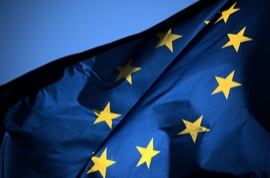The news that the European Parliament yesterday adopted amendments to the European Commission proposal for a new anti-money laundering directive has received a cautious response from two leading industry associations.

The Remote Gambling Association said that it “strongly supports the objectives of the new directive” but is “disappointed that online gambling has been singled out as the one form of gambling where due diligence measures might have to be applied to all customers as soon as a business relationship is established.”
“This runs completely counter to the risk-based approach that has always been a key principle of successive [AML directives],” the RGA statement read.
Clive Hawkswood, RGA chief executive, added: “It is very difficult to see how an objective review of the facts, including the success of the third [AML directive] in combatting money laundering, could have led parliament to this conclusion.
“The licensed online gambling sector has highly developed tools for identifying possible threats and has an excellent record in preventing money laundering. As an industry we are never complacent, but quite simply there is no justification for singling out our sector for this kind of treatment.”
Hawkswood concluded: “We hope now that the EU council will reject the parliament’s position on this issue and that the European Commission will defend its original stance."
The European Gaming and Betting Association meanhwile is more optimistic about the move, if still cautious. Maarten Haijer, secretary general of EGBA, said: “The EGBA would like to congratulate the European parliament for its vote on these revised rules. It confirms that online gambling is an inherent cross-border service which, in line with the subsidiarity principle, is better governed by one set of rules at EU level, rather than by 28 different national laws. These rules will further add to the existing body of internal market legislation applicable to the gambling sector.”
Haijer added: “If exemptions are to be granted, they will need to be risk-based and supported by clear evidence. The lack of cash money and the transparency and traceability of online gambling transactions in a regulated environment are great assets to mitigate potential risks of money laundering.”
“We are confident that the European parliament now has a good basis to come to an agreement with the council,” continued Haijer.
“We hope that the final text will be approved by all institutions by the end of the year as it is vital that the directive is transposed at national level as soon as possible.”

